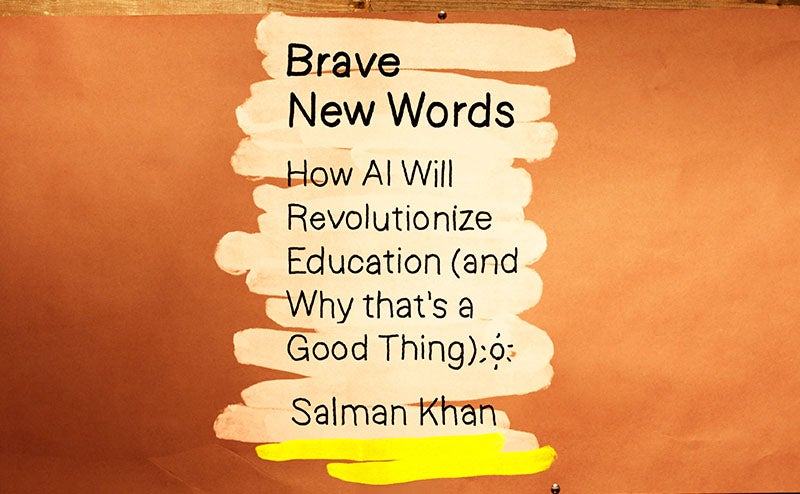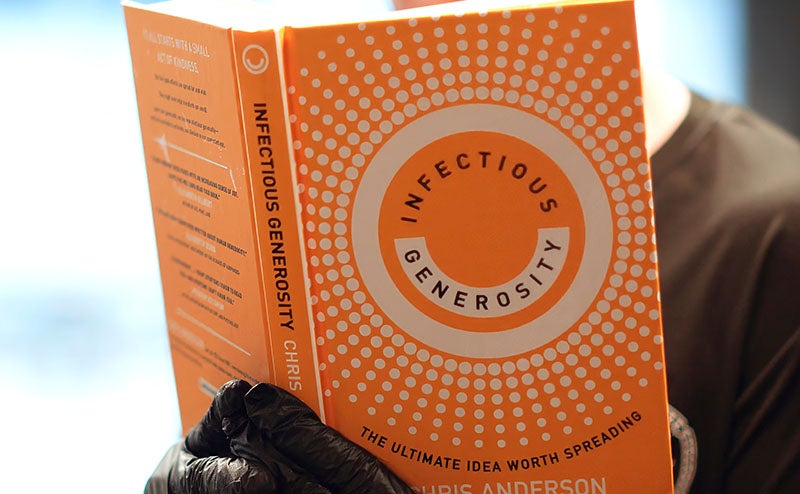In the past quarter-century, China lifted more than 500 million people out of extreme poverty.
When it comes to books, it’s pretty rare that I get intimidated. I read all kinds of books, including ones that only the harshest college professors would assign. And yet I must admit that for many years I steered clear of anything by David Foster Wallace. I often heard super literate friends talking in glowing terms about his books and essays. I even put a copy of his tour de force Infinite Jest on my nightstand at one point, but I just never got around to reading it.
I’m happy to report that has now changed. It started last year when I watched “The End of the Tour,” a great movie with Jason Segel and Jesse Eisenberg that takes place when Wallace was on the road somewhat reluctantly promoting Infinite Jest. The movie made Wallace seem so damn interesting, and it really humanized him for me. In addition to shedding light on the nature of his literary genius, it also foreshadows the depression that led him to commit suicide in 2008. Recently, I also watched an amazing video of Wallace’s famous 2005 commencement speech at Kenyon College. It is one of the most moving speeches I’ve heard in a long time.
Then this past May, Library of America came out with String Theory, a short volume of Wallace’s essays on tennis. The book gave me the perfect opportunity to give Wallace a try, because I really enjoy tennis. I gave up tennis when I got fanatical about Microsoft. (During those intense years, my only exercise was running around the office and jumping up and down.) I’m now back on the court at least once a week and have built a pretty solid game for a 61-year old who can’t hit a lot of winners from the baseline.
I would say to anyone who likes tennis as much as I do, you have to read String Theory. You’ll take away insights that go way beyond what you get by reading the typical article in a tennis magazine or listening to a color commentator on TV. In this respect, the book reminded me of John McPhee’s classic Levels of the Game, about Arthur Ashe’s 1968 U.S. Open victory, and The Blind Side, Michael Lewis’s brilliant book about the evolution of the game of football.
Wallace is insightful about the sport partly because he was a very good junior player when he was growing up in the late ’70s, using his brilliant math mind to understand and play all the angles on the court. His personal experience gave him a lasting appreciation for the physical and mental gifts you need to be truly great.
As much as I loved the book for its insights on the game, I loved it just as much for the writing itself. I now understand why people talk about David Foster Wallace with the same kind of awe that tennis fans use to talk about a Roger Federer or Serena Williams. Wallace’s ability to use language is mind-blowing. He’s an artist who approaches a canvas with the exact same oil paints everyone before him has used and then applies them in breathtaking new and creative ways.
The first thing you have to get used to with Wallace is his non-linear expository style. You just have no idea where Wallace’s mind or story will go next, like a great tennis player who never telegraphs a shot. An essay that starts out describing his childhood tennis competitions in Illinois will flow into fascinating eddies on calculus, geometry, meteorology, and engineering. Fortunately, almost all of his narrative digressions are both fascinating and surprisingly easy to follow, even when Wallace uses lots of footnotes. (Even some of the footnotes have footnotes!)
When I was putting off reading Wallace, I assumed his writing would be pretentious. I was wrong. Yes, there are lots of words you’ll have to look up online. But even with all the SAT words, Wallace just doesn’t sound like he’s trying to prove he went to a fancy college. For every reference to Aquinas or Wagner, there’s a reference to Beavis or Danny DeVito.
I came away with the sense that Wallace felt compelled to bend language like a metal spoon not to show off his supernatural ability but simply to allow him to capture all the keen observations his mind was constantly making. It’s almost impossible to illustrate this idea with a single passage of his writing—so I encourage you to pick up String Theory or one of his other books and see for yourself. But I can give you at least a hint of what I’m talking about. Here’s a passage from a review of Tracy Austin’s memoir, which was less about the book than about our unrealistic expectations of our sports heroes:
Real indisputable genius is so impossible to define, and true technē so rarely visible (much less televisable), that maybe we automatically expect people who are geniuses as athletes to be geniuses also as speakers and writers, to be articulate, perceptive, truthful, profound. If it’s just that we naively expect geniuses-in-motion to be also geniuses-in-reflection, then their failure to be that shouldn’t really seem any crueler or more disillusioning than Kant’s glass jaw or Eliot’s inability to hit the curve.
With the fancy words, English-major allusions, and winding sentences, it’s the opposite of the elegantly simple language of Hemingway. But it’s no less articulate, perceptive, truthful, or profound. That’s why I’m now on a big Wallace kick. I still haven’t read Infinite Jest, at a whopping 1,079 pages, but I know I’ll get to it. Because this troubled genius, who died way too young, was the real deal.





